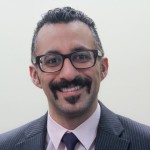Iran After the Nuclear Deal
March 7th, 2016
Following the Iran nuclear deal, there is increased speculation on the future of Iran in regards to the state's economy, domestic politics, and international relations. International economic sanctions were formally lifted this year after Iran was found in compliance of the nuclear agreement, opening the Islamic Republic's oil and banks to the world market. These developments are projected to increase oil export revenue by $10 billion in 2017, and give Iran access to $100 billion of foreign reserves formerly frozen in international accounts. In the west, and among reformists in Iran, there is hope that the nuclear agreement rebalances domestic politics to a moderate equilibrium. There is excitement that the February 2016 elections will be a step in this direction, as a new parliament and Assembly of Experts, the latter of which is responsible for choosing the next Supreme Leader, will be decided. Amidst this optimism, hardliners in Iran are committed to political continuity and are insistent that the nuclear agreement does not equate to normalized relations with the west. Finally, Iran's foreign affairs are increasingly in the international spotlight. The release of four American prisoners as part of a prisoner swap is seen as a positive development in Tehran's diplomatic relations with Washington, but Iran's support of Syrian President Bashar al-Assad and tensions with Saudi Arabia is cause for concern in the international community.
On March 7, join the World Affairs Council for an event covering Iran's economic, political, and diplomatic outlook following the nuclear agreement. Our discussion will be led by Reza Marashi, Research Director at the National Iranian American Council, and an authority on recent developments in Iran.
The entrance to City University is on the corner of Wall St. and 6th Ave. A map overview is available here. A street view of the entrance is available here.
About our speaker:
Reza Marashi - Research Director, National Iranian American Council (NIAC)
 Reza Marashi joined NIAC in 2010 as the organization’s first Research Director. He came to NIAC after four years in the Office of Iranian Affairs at the U.S. Department of State. Prior to his tenure at the State Department, he was an analyst at the Institute for National Strategic Studies (INSS) covering China-Middle East issues, and a Tehran-based private strategic consultant on Iranian political and economic risk. Marashi is frequently consulted by Western governments on Iran-related matters. His articles have appeared in The New York Times, Foreign Affairs, Foreign Policy, and The Atlantic, among other publications. He has been a guest contributor to CNN, NPR, the BBC, TIME Magazine, The Washington Post, and the Financial Times, among other broadcast outlets.
Reza Marashi joined NIAC in 2010 as the organization’s first Research Director. He came to NIAC after four years in the Office of Iranian Affairs at the U.S. Department of State. Prior to his tenure at the State Department, he was an analyst at the Institute for National Strategic Studies (INSS) covering China-Middle East issues, and a Tehran-based private strategic consultant on Iranian political and economic risk. Marashi is frequently consulted by Western governments on Iran-related matters. His articles have appeared in The New York Times, Foreign Affairs, Foreign Policy, and The Atlantic, among other publications. He has been a guest contributor to CNN, NPR, the BBC, TIME Magazine, The Washington Post, and the Financial Times, among other broadcast outlets.
About our moderator:
David Woodward - President & CEO, Associates in Cultural Exchange (A.C.E.)
David Woodward is the President & CEO of Associates in Cultural Exchange. He first joined A.C.E. in 1980 as an English as a Second Language teacher, and became President & CEO in 1998. Woodward was born in Iran where he spent his early youth and developed a fascination for languages and cultures of the world. He eventually became fluent in Persian, French and Arabic, and traveled to 50+ countries over the course of his career.